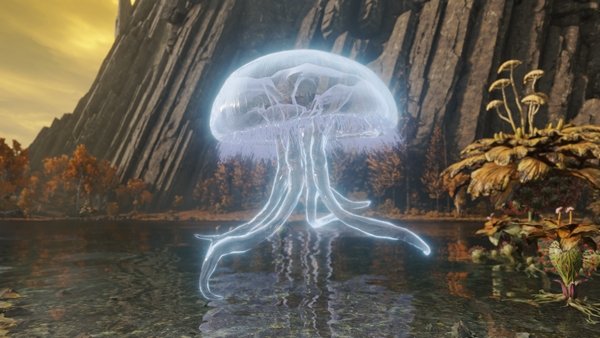Problem difficulty so far (up to day 16)
- Day 15 - Warehouse Woes: 30m00s
- Day 12 - Garden Groups: 17m42s
- Day 14 - Restroom Redoubt: 15m48s
- Day 09 - Disk Fragmenter: 14m05s
- Day 16 - Reindeer Maze: 13m47s
- Day 13 - Claw Contraption: 11m04s
- Day 06 - Guard Gallivant: 08m53s
- Day 08 - Resonant Collinearity: 07m12s
- Day 11 - Plutonian Pebbles: 06m24s
- Day 04 - Ceres Search: 05m41s
- Day 02 - Red Nosed Reports: 04m42s
- Day 10 - Hoof It: 04m14s
- Day 07 - Bridge Repair: 03m47s
- Day 05 - Print Queue: 03m43s
- Day 03 - Mull It Over: 03m22s
- Day 01 - Historian Hysteria: 02m31s


22!
spoilers!
Well it’s not a grid! My chosen language does not have bitwise operators so it’s a bit slow. Have to resort to manual parallelization.
so many off by one errors
also first time I had to run the code on a desktop machine because my VPS was too slow
Hacky Manual parallelization
22-b.jq
Massive time gains with parallelization + optimized next function (2x speedup) by doing the 3 xor operation in “one operation”, Maybe I prefer the grids ^^:
#!/usr/bin/env jq -n -f #────────────────── Big-endian to_bits ───────────────────# def to_bits: if . == 0 then [0] else { a: ., b: [] } | until (.a == 0; .a /= 2 | if .a == (.a|floor) then .b += [0] else .b += [1] end | .a |= floor ) | .b end; #────────────────── Big-endian from_bits ────────────────────────# def from_bits: [ range(length) as $i | .[$i] * pow(2; $i) ] | add; ( # Get index that contribute to next xor operation. def xor_index(a;b): [a, b] | transpose | map(add); [ range(24) | [.] ] | xor_index([range(6) | [-1]] + .[0:18] ; .[0:24]) | xor_index(.[5:29] ; .[0:24]) | xor_index([range(11) | [-1]] + .[0:13]; .[0:24]) | map( sort | . as $indices | map( select( . as $i | $i >= 0 and ($indices|indices($i)|length) % 2 == 1 ) ) ) ) as $next_ind | # Optimized Next, doing XOR of indices simultaneously a 2x speedup # def next: . as $in | $next_ind | map( [ $in[.[]] // 0 ] | add % 2 ); # Still slow, because of from_bits # def to_price($p): $p | from_bits % 10; # Option to run in parallel using xargs, Eg: # # seq 0 9 | \ # xargs -P 10 -n 1 -I {} bash -c './2024/jq/22-b.jq input.txt \ # --argjson s 10 --argjson i {} > out-{}.json' # cat out-*.json | ./2024/jq/22-b.jq --argjson group true # rm out-*.json # # Speedup from naive ~50m -> ~1m def parallel: if $ARGS.named.s and $ARGS.named.i then select(.key % $ARGS.named.s == $ARGS.named.i) else . end; #════════════════════════════ X-GROUP ═══════════════════════════════# if $ARGS.named.group then # Group results from parallel run # reduce inputs as $dic ({}; reduce ( $dic|to_entries[] ) as {key: $k, value: $v} (.; .[$k] += $v ) ) else #════════════════════════════ X-BATCH ═══════════════════════════════# reduce ( [ inputs ] | to_entries[] | parallel ) as { value: $in } ({}; debug($in) | reduce range(2000) as $_ ( .curr = ($in|to_bits) | .p = to_price(.curr) | .d = []; .curr |= next | to_price(.curr) as $p | .d = (.d+[$p-.p])[-4:] | .p = $p # Four differences to price | if .a["\($in)"]["\(.d)"]|not then # Record first price .a["\($in)"]["\(.d)"] = $p end # For input x 4_diff ) ) # Summarize expected bananas per 4_diff sequence # | [ .a[] | to_entries[] ] | group_by(.key) | map({key: .[0].key, value: ([.[].value]|add)}) | from_entries end | #═══════════════════════════ X-FINALLY ══════════════════════════════# if $ARGS.named.s | not then # Output maximum expexted bananas # to_entries | max_by(.value) | debug | .value endIf nothing else, you’ve definitely stopped me forever from thinking of jq as sql for json. Depending on how much I hate myself by next year I think I might give kusto a shot for AOC '25
22-2 commentary
I got a different solution than the one given on the site for the example data, the sequence starting with 2 did not yield the expected solution pattern at all, and the one I actually got gave more bananas anyway.
The algorithm gave the correct result for the actual puzzle data though, so I’m leaving it well alone.
Also the problem had a strong map/reduce vibe so I started out with the sequence generation and subsequent transformations parallelized already from pt1, but ultimately it wasn’t that intensive a problem.
Toddler’s sick (but getting better!) so I’ve been falling behind, oh well. Doubt I’ll be doing 24 & 25 on their release days either as the off-days and festivities start kicking in.